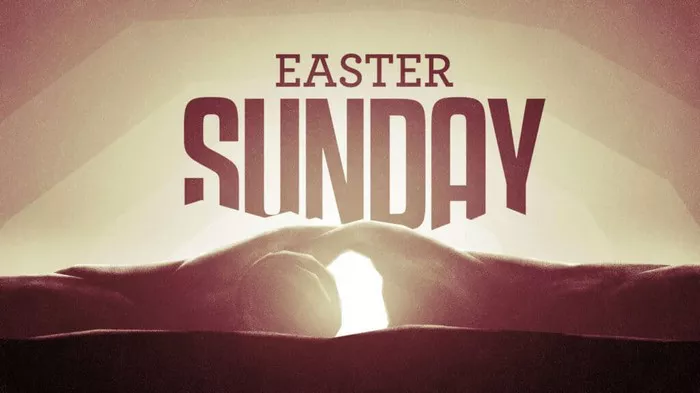Easter Sunday stands as the pinnacle of the Catholic liturgical calendar, embodying the core of Christian faith—the resurrection of Jesus Christ. As the most significant feast day in Catholicism, it marks the culmination of the Lenten season, a period of reflection, fasting, and prayer leading up to the celebration of Christ’s triumph over death. The essence of Easter Sunday lies in the profound belief that through Christ’s resurrection, humanity finds redemption, hope, and the promise of eternal life.
The Easter Vigil
The Easter Vigil represents a sacred and joyous liturgical celebration held on the evening before Easter Sunday. This vigil is marked by a series of distinctive rituals and symbols that convey the profound spiritual significance of Christ’s resurrection. Central to the Easter Vigil is the lighting of the Paschal candle, symbolizing the light of Christ breaking through the darkness of sin and death. As the flame is passed from the Paschal candle to individual candles held by the faithful, it signifies the spreading of Christ’s light throughout the world.
Throughout the vigil, scripture readings recount the story of salvation history, from creation to the resurrection, underscoring the divine plan of redemption fulfilled in Christ. The vigil culminates in the sacraments of initiation, with catechumens receiving the sacraments of baptism, confirmation, and the Eucharist, thus entering fully into the life of the Church. This momentous occasion symbolizes the spiritual rebirth and renewal experienced by all believers through Christ’s resurrection.
Easter Sunday Mass
The Easter Sunday Mass is a jubilant celebration that continues the festive spirit of the Easter Vigil. It follows the traditional structure of the Catholic Mass, with particular emphasis on elements that highlight the resurrection of Christ. The Liturgy of the Word features readings that recount the resurrection narrative and the fulfillment of Old Testament prophecies, reinforcing the belief in Christ as the Messiah and Savior.
During the Liturgy of the Eucharist, the faithful partake in the sacrament of the Holy Communion, commemorating Christ’s sacrificial death and triumphant resurrection. The Eucharist serves as a tangible expression of communion with Christ and fellow believers, reinforcing the unity of the Church in Christ’s victory over sin and death.
Specific Easter traditions further enrich the Easter Sunday Mass, such as the sprinkling of holy water, symbolizing spiritual cleansing and renewal, and the renewal of baptismal promises, affirming the commitment to live as disciples of Christ. These rituals serve to deepen the spiritual significance of Easter and reinforce the bonds of faith within the Catholic community.
Beyond the Mass
Beyond the liturgical celebrations, Easter Sunday holds additional significance for Catholics through various cultural and familial traditions. Family gatherings provide an opportunity for fellowship and rejoicing, as loved ones come together to share in the joy of Christ’s resurrection. Festive meals, often featuring symbolic foods like lamb and Easter bread, serve as a reminder of the abundance of God’s blessings and the fellowship enjoyed in Christ’s presence.
Easter egg hunts, while a secular tradition, can also carry spiritual symbolism within the Catholic context. The egg, traditionally a symbol of new life and rebirth, can serve as a reminder of Christ’s resurrection and the promise of eternal life for believers. Acts of charity and service to others, particularly those in need, further exemplify the spirit of Easter by embodying Christ’s love and compassion for all humanity.
Spiritual Significance of Easter Traditions
At the heart of Easter traditions lies a profound spiritual significance that transcends mere symbolism. The lighting of the Paschal candle symbolizes the triumph of light over darkness, echoing Christ’s victory over sin and death. The sacraments of initiation administered during the Easter Vigil signify the believer’s participation in Christ’s death and resurrection, marking a new beginning in their spiritual journey.
The Easter Sunday Mass, with its emphasis on the resurrection narrative and the sacraments, serves as a tangible expression of faith in Christ’s redemptive work. The sprinkling of holy water and renewal of baptismal promises underscore the believer’s ongoing commitment to live in accordance with the Gospel and the teachings of Christ.
Family gatherings and festive meals offer an opportunity for fellowship and gratitude, reflecting the joy and abundance of God’s grace. Easter egg hunts, while a secular tradition, can serve as a playful reminder of the spiritual truths embodied in Christ’s resurrection. Acts of charity and service to others embody the essence of Christ’s teachings, demonstrating love, compassion, and solidarity with the marginalized and vulnerable.
Conclusion
In essence, Easter Sunday serves as a reminder of the hope, renewal, and eternal life made possible through Christ’s resurrection. It is a time of rejoicing and thanksgiving, as believers reflect on the profound significance of Christ’s victory over sin and death. Through liturgical celebrations, familial traditions, and acts of charity, Catholics around the world come together to proclaim the central tenet of their faith—that Christ is risen, and in him, they find redemption and everlasting life.

